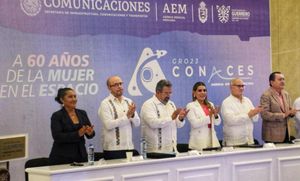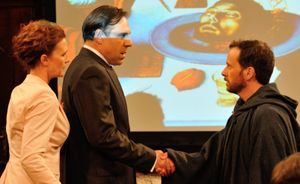On February 21, the world celebrated International Mother Language Day, shedding light on the linguistic diversity and challenges faced by nations striving to preserve their unique cultures. Two former Portuguese colonies, Timor-Leste and Mozambique, demonstrate how language can define identity, illustrating drastically different struggles directly associated with linguistic preservation.
Timor-Leste is home to 16 mother languages, yet many of these are rapidly vanishing as the nation grapples with the dominance of its official languages: Portuguese and Tetum, which is also widely used within the Catholic Church. According to Rosa Tilman, director of the National Institute of Linguistics at the National University of Timor-Leste, only two other languages, Makasae and Mambae, retain significant native speaker bases. Of the remaining languages, 13 are either on the brink of extinction or already lost. For example, the Makuva language is now limited to ritual use among elders, indicating the severe erosion of cultural identity.
“All Timorese must defend their mother tongue because it presents their culture and identity,” Tilman remarked, emphasizing the pressing need to cultivate and increase the number of speakers of these languages. Without written forms, these languages face significant threats, and Tilman believes fostering usage is more important than ever.
On the other hand, Mozambique boasts over 40 mother tongues and has the majority speaking one or more native languages as their first. Yet the dominance of Portuguese, the official language, is lamentably low, with nearly 90 percent of Mozambican children starting school without prior knowledge of it. To counter this linguistic disparity, authorities introduced bilingual education to primary schools back in 2015.
Despite this important initiative, challenges persist. Armindo Ngunga, professor of linguistics at Eduardo Mondlane University (UEM), acknowledges the bilingual model is not meeting its initial goals. “The bilingual model has fallen far short of its goals,” he stated, highlighting deficiencies in instructor training and the pressure teachers face to promote passing grades rather than bolstering genuine learning.
Ngunga advocates for increased investment in teacher training to effectively implement bilingual education through to secondary schooling, asserting this could fulfill the government’s aim of educating over five million students in both Portuguese and their native languages by the goal date of 2029.
International Mother Language Day also provided Sviatlana Tsikhanouskaya, the Belarusian opposition leader, with another platform to amplify the significance of preserving linguistic identity. Tsikhanouskaya addressed her compatriots directly, expressing the belief: “Justice is more than a legal term or an abstract concept. Justice is the foundation of a democratic and free society.” Her call to action during the celebration included encouraging Belarusians to integrate their native language more substantively within their daily lives.
“Please support each other. Do not discourage the desire in others to speak Belarusian,” she passionately urged, reflecting the day's underlying message of standing up for one’s language amid often-dominant cultures.
The day served as more than just an observance; it highlighted the urgent need for continued efforts at governmental and community levels to bolster linguistic diversity. While Timor-Leste fights the erosion of its languages, Mozambique attempts to solidify the use of Portuguese among its youth amid multilingual scenarios. Meanwhile, Tsikhanouskaya rallies her compatriots to champion their language as part of Belarus's struggle for freedom.
International Mother Language Day is truly about recognizing the wide array of languages, the stories they tell, and the cultural identities they frame. By emphasizing both the challenges and efforts being made, this observance uncovers the necessity of advocating for language preservation, showcasing how language shapes our identities and societies.



